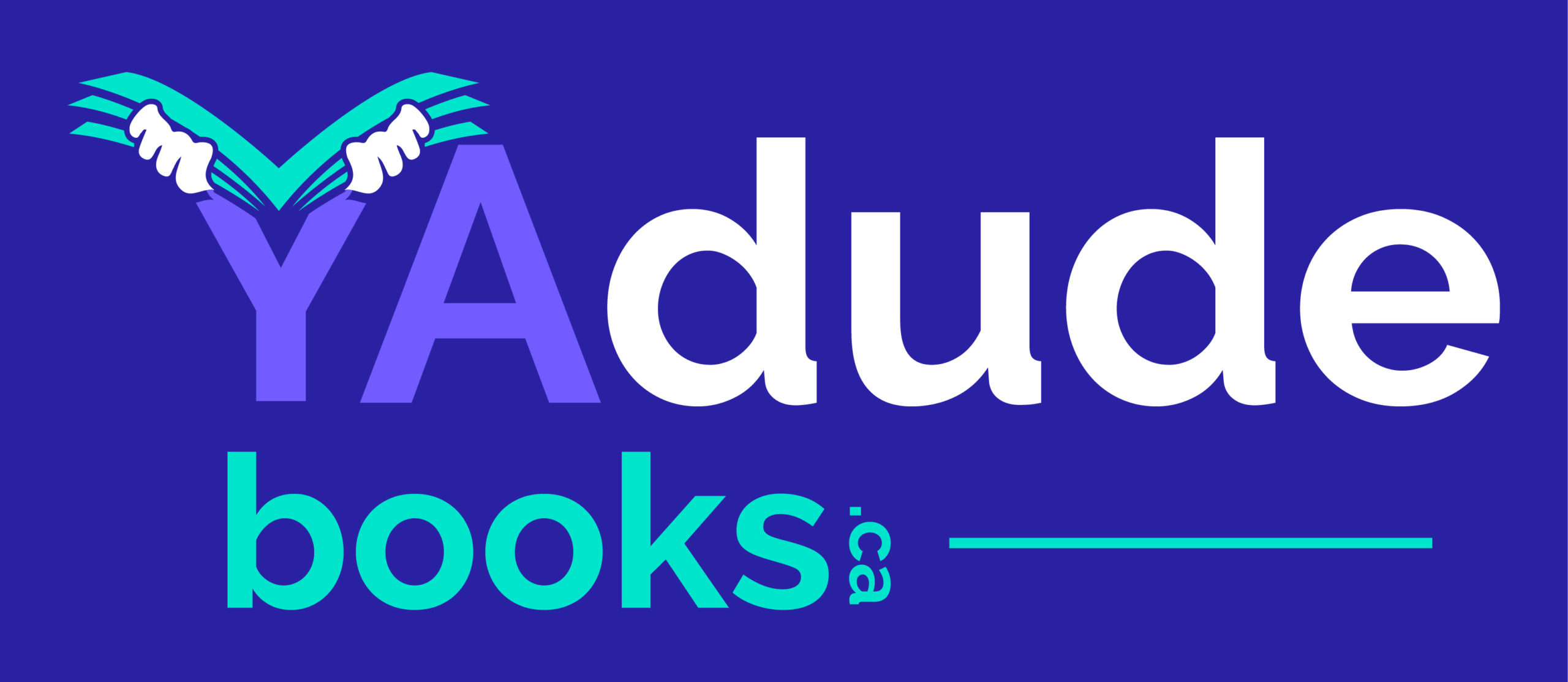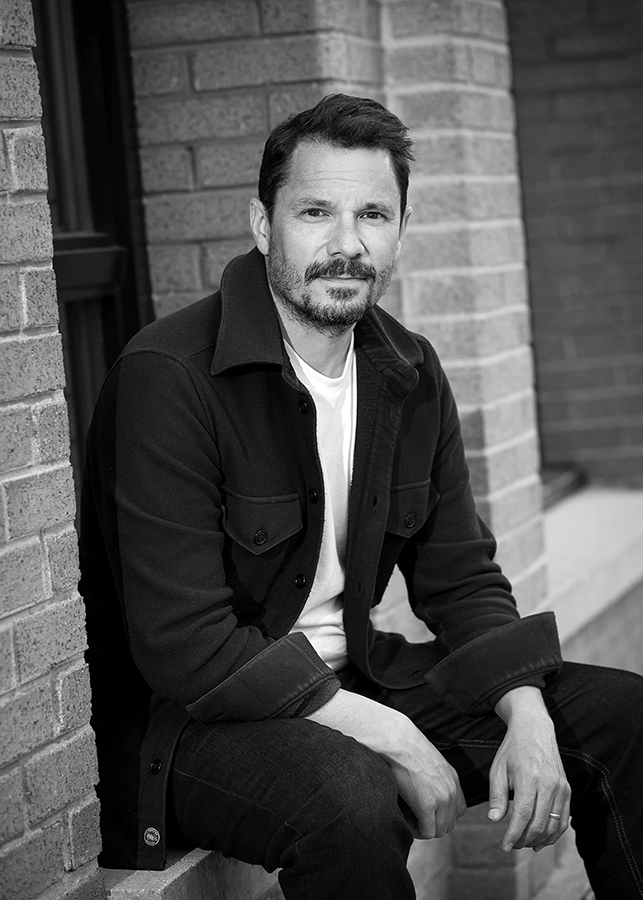Giano Cromley is the author of two young-adult novels, The Prince of Infinite Space (Propertius Press, 2022) and The Last Good Halloween (Tortoise Books, 2013), as well as the adult short story collection, What We Build Upon the Ruins (Tortoise Books, 2017). He has been a finalist for the High Plains Book Award twice, and is a recipient of an Artists Fellowship from the Illinois Arts Council. His second novel drew comparisons with J. D. Salinger’s Catcher in the Rye.
Originally from Billings, Montana, Giano graduated from Dartmouth College and received an MFA from the University of Montana. He worked as a speech writer and deputy press secretary in Washington, D.C., and taught GED and ESL classes in Chicago. He is currently an English professor and chair of the Communications Department at Kennedy-King College (City Colleges of Chicago). He is also an assistant fiction editor with the literary magazine Identity Theory. He lives on the South Side of Chicago with his wife and two dogs.
He can be found at http://www.gianocromley.com/, https://www.facebook.com/giano.cromley, @gianoc and https://www.instagram.com/gianocromley/.
Q: Both your novels offer coming-of-age stories about road trips. Have you ever been on a road trip and if so, can you give us a glimpse of what story-fodder it gave you?
A: I’m an inveterate road-tripper. To this day, few things give me more joy than clear skies and an open road. Perhaps my most formative road trip took place when I was in high school. A friend and I volunteered as counselors at a camp near Great Falls, Montana. This was back in the 80s, when carrying a credit card wasn’t common for most teenagers, so we had only the cash in our pockets to buy gas and food. We were flying by the seat of our pants, unsure whether we’d have enough to make it back home. But screaming across the blacktop, windows open, Van Halen blaring on the tape deck, that trip was my first taste of adult freedom. Maybe that’s why I’m obsessed with teenagers going on road trips in my novels.
Q: Your literary writing taps skillfully into teen angst while also offering wry humor. What is your secret to producing such relatable characters, complete with vulnerability and flaws?
A: Creating a character happens very organically for me. I start with a fragment (a voice, a gesture, a mindset) and then start shaping the character around that. To really uncover who they are, I put them into situations that let them reveal themselves to me. For example, Kirby Russo, the protagonist of both my novels, started off as a voice in my head – a rant about how he had a knockoff video game console so all his games were off-brand versions of the real thing. That rant never made it into either novel, and the books have nothing whatsoever to do with video games, but it was enough for me to start figuring out who this voice belonged to. I never consciously tried to make him relatable – and I suspect some people may find him to be a bit too much to handle – but he’s always true to his authentic self, which is all I ever wanted him to be.
Q: What kind of teen were you?
A: It has taken me most of my adult life to realize I am, at my core, an introvert. People who know me shake their heads when I say this, but I’ve learned that being introverted doesn’t mean you’re antisocial; it just means that being social requires a lot of personal energy. Rather than charging me up, it leaves me depleted. As a result, I think I probably came off as confident, smart, smartass and loser at various points in my teenage years. My coping mechanism was to be flexible, adaptable to whatever situation I found myself in. As an adult, however, I’m far more interested in the outcasts, the “losers.” Because they’re the ones with real courage. Rather than conforming to whatever tastes or mores exist at the time, they’ve got the guts to remain steadfastly themselves. That’s probably why I love Kirby Russo so much.
Q: You started as a short story writer. How does that help your novel writing?
A: I had a teacher once say that in the time it takes to write one failed novel, you could write ten failed short stories, so why not get the failure out of your system that much quicker? Screwing something up is instructive and it’s the best teacher out there – if your ego lets you recognize it. Each story I write is a lesson built on small failures – figuring out what didn’t work, seeing if there’s a way to make it better. (I’m using “failure” here perhaps too cavalierly. Time spent in service to an art you love, to an art that nourishes you, can never be considered a failure. That has been a big part of my evolution as a writer – to learn to enjoy the process rather than the product.)
Q: From a collection of short stories about “love, loss and longing” to your latest novel, you seem to be expanding your use of humor. Is that conscious, are you a funny guy in real life and why might it be something you think wins over boy teen readers?
A: It wasn’t until I started embracing humor that I found my writer’s voice. Writing comedy has a high degree of difficulty. It’s a balancing act where, if you’re not careful, you can lean into the humor too much or not enough. Plus, there’s the peril that any given line might be a lot less funny to the reader than it is to you. But when it works, there’s nothing more gratifying than writing a great comedic scene, and hearing people laugh out loud when they read something you wrote. It’s perhaps the most genuine human reaction we have. And I think readers appreciate that too. At our core, don’t we all just crave a good laugh?
Q: Why have you opted to write for young adults and what can we expect next?
A: Curiously, I never set out to write young-adult fiction. I set out to write a book that authentically portrayed someone in that formative stage of life. I’d like to think that mindset allowed me to write about the teenage experience from a realistic, even gritty perspective. It was only after I started showing the manuscript to people that an agent told me it was YA.
My next book, which is currently out on submission to publishers, is not technically YA. But it deals with a topic I’ve been fascinated with since I was a kid: Bigfoot. It explores the reasons why this most American of myths persists in our culture, and how it defines us as much as we define it.
-Pam Withers

